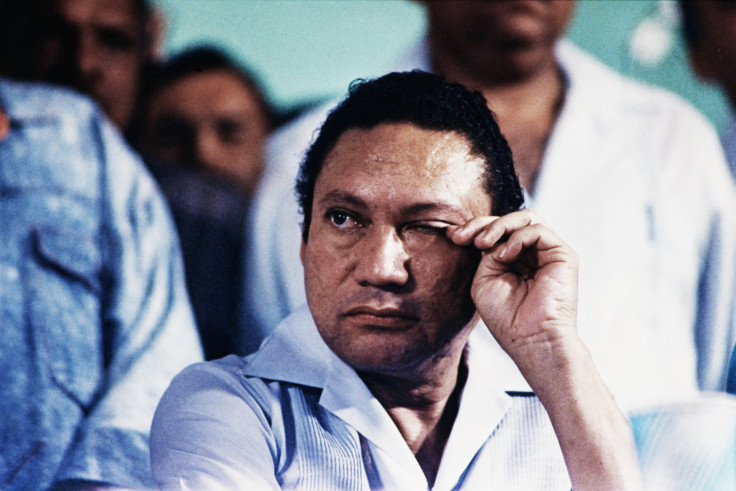Manuel Noriega Apologizes For Abuses Under Panama's Military Regime

Manuel Noriega, the former Panamanian dictator, broke a long silence Wednesday and apologized for the excesses of the military regime that ruled the country for decades, according to media reports.
In his first interview since 1996, Noriega told Panamanian TV station Telemetro: “I am asking for forgiveness from all the people who were offended, affected, hurt or humiliated by my actions or those of my superiors in compliance with orders, or those of my subordinates."
He added that he wanted to "close the cycle of the military era." He refused to be drawn on specific abuses committed by the regime, in particular the mysterious disappearance of two former political opponents.
Noriega was an officer in Panama's military and ruled the country as de-facto dictator from 1983 to 1989, when he was ousted by a U.S. military invasion.
Following the invasion, he was taken to the U.S., and subsequently convicted of drug trafficking and racketeering charges in 1992. He served a prison sentence in the U.S. until 2010, when he was extradited to France, to serve time for a money laundering conviction. He is currently serving a 60-year sentence in Panama for murder, embezzlement and other crimes connected to the former military regime, Reuters reported.
Noriega was a central figure in the cocaine trade during the 1970s, and was closely linked to the notorious Medellin Cartel. Under his rule, traffickers were able to use Panama as a transit hub for their illicit product, and also to deposit the proceeds of the trade in the country's banks.
Reaction to the interview in Panama was mixed, with some on social media expressing surprise at the former strongman's apparent capitulation. Others, however, suggested the apology was a ruse to secure Noriega a presidential pardon, or for him to be allowed to serve out the remainder of his sentence under house arrest, the Associated Press reported.
© Copyright IBTimes 2025. All rights reserved.





















